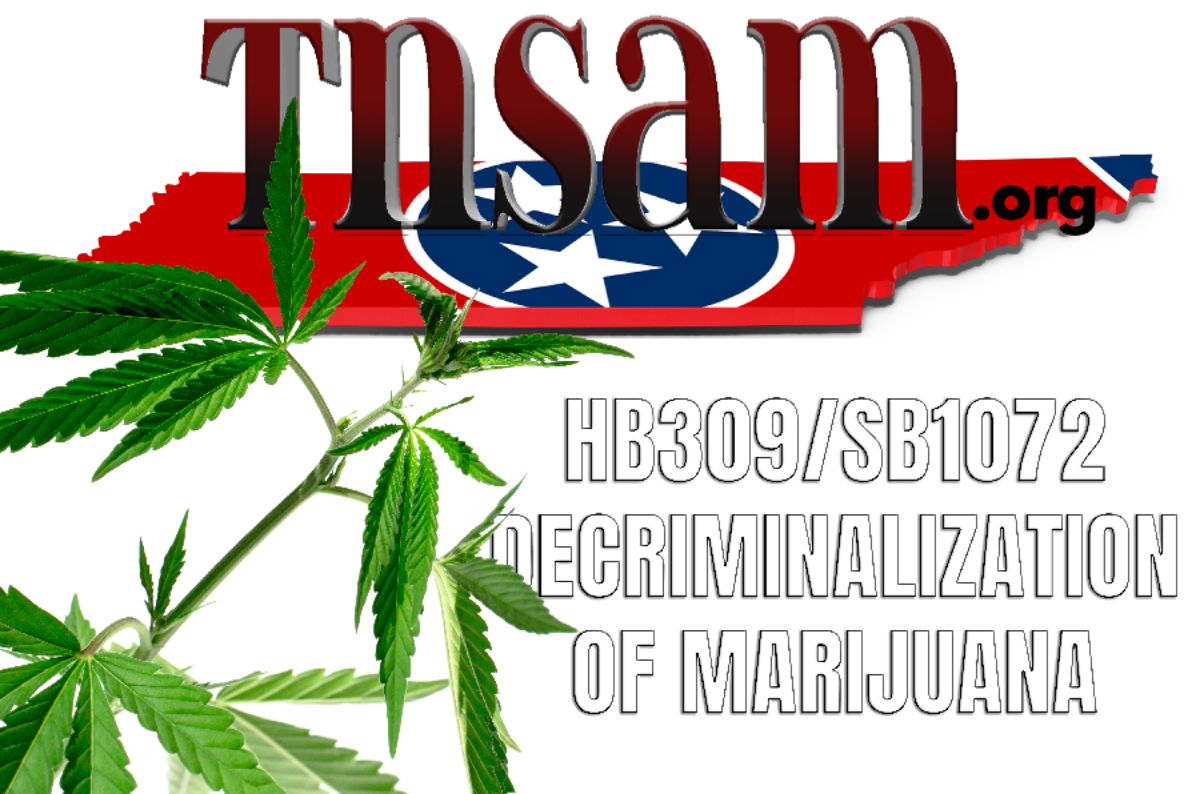HB309/SB1072 Decriminalization of Marijuana
February 27, 2023
The Honorable Clay Doggett
Chair
House Subcommittee on Criminal Justice
1st Floor, State Capitol
600 Dr. Martin L. King, Jr. Blvd.
Nashville, TN 37243
Re: TNSAM’s Support for HB309/SB1072
Dear Chair Doggett,
On behalf of the Tennessee Society of Addiction Medicine (TNSAM), the medical specialty society representing physicians and clinicians in Tennessee who specialize in the prevention and treatment of addiction, thank you for the opportunity to comment on this important topic. We write today to express our support for HB309/SB1072. This legislation would decriminalize possession of small, personal-use quantities (1 ounce or less) of cannabis and implement a $25 fine in place of criminal penalties. If the person is under 18 years of age, then the penalty for possession would be shifted to 5 hours of community service or completion of a drug awareness program.
Decriminalization of small, personal-use quantities of cannabis is a commonsense policy. As of this year, a strong majority of states– 31 states to be exact– have decriminalized cannabis possession.
i Decriminalization of cannabis reduces the burden placed upon the criminal-legal system and offers considerable cost savings. Most cannabis arrests are associated with simple possession of cannabis.
ii Each arrest for cannabis possession is a costly ordeal. Estimates suggest that an arrest costs about $1,000, excluding future court fees and incarceration costs.
iii The potential savings incurred from cannabis decriminalization can be better used to advance other public health goals, such as investing in the prevention and treatment of substance use disorder (SUD).
Further, decriminalization of personal use quantities of cannabis acknowledges and addresses decades of evidence detailing the harms of cannabis criminalization. Historically, our nation’s punitive approach to cannabis possession caused significant harm related to arrest and incarceration, which disproportionately impacts people of limited means and persons of color. For example, while cannabis use rates are relatively similar across racial groups, Black Americans are about four times more likely to be arrested for cannabis than white Americans.
iv Additionally, incarceration places considerable strain on all facets of a person’s life, creating unnecessary barriers to obtaining employment, public benefits, and housing.v By decriminalizing cannabis possession, HB309/SB1072 takes a significant step towards righting historical wrongs and ameliorating differential enforcement of cannabis possession laws.
Simply put, the continued criminalization of cannabis is an outdated approach that has done more harm than good. As such, we support HB309/SB1072 and urge members of this committee to advance this important and evidence-based legislation. Please do not hesitate to contact sumrokd@gmail.com if you have any questions or concerns. Thank you for your consideration.
Sincerely,

Daniel D. Sumrok, MD, FAAFP, DFASAM
President, Tennessee Society of Addiction Medicine

